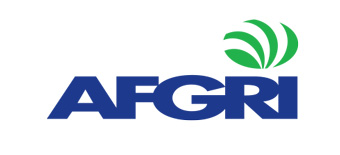Conflict of Interest and Commitment
Table of Contents
- Introduction
- Principle/Objective
- Purpose
- Roles and Responsibilities
- Definitions
- Scope
- Policy
- Potential Conflicts of Interest or Commitment Examples
- Process
- General
- Introduction
A conflict of interest exists when employees and their immediate families have direct personal interest in, or derive benefits from transactions to which the Company is also a party. Such situations must be avoided and prevented at all times in the interest of honest and bona fide business practices.
A conflict of commitment exists when an employee has a relationship that requires a commitment of time or effort to non-AFGRI related activities, such that the employee is unable to meet his/her usual obligations to AFGRI.
Conflicts may be actual or perceived. The perception of a conflict is influenced by whether an independent observer might question whether the individuals’ professional actions were motivated or influenced by a potential personal financial gain. This policy is intended to increase the awareness of all employees to the potential for conflicts of interest and conflicts of commitment and to establish procedures whereby such conflicts may be avoided or properly managed.
2. Principle/Objective
Conflicts of interest can arise naturally from an individual’s engagement with the world outside of AFGRI. The mere existence of a conflict of interest does not necessarily imply wrongdoing on anyone’s part. When conflicts of interest do arise, however, they must be recognized, disclosed, and managed, reduced, or eliminated. Even when no conflict actually exists, the appearance of conflict of interest may be present. Such apparent conflicts can do as much damage as actual ones and should thus be avoided. Each employee of AFGRI has an obligation to act in the best interests of the company, and must not let outside activities or outside financial interests interfere with those obligations.
3. Purpose
This document is designed to provide a guideline to employees and management to ensure that all AFGRI staff members adhere to the conflict or interest and commitment policy.
4. Roles and Responsibilities
- Line Managers are responsible to manage and keep record of any relevant declaration as
- Employees are expected to act with honesty and integrity, protecting the Company’s interests at all
5. Definitions
Conflict of Interest: arises when an AFGRI employee is or may be in a position to influence AFGRI’s business and/or other decisions in ways that could lead to any form of personal gain for the employee or the employee’s family, or give improper advantage to others.
Conflict of Commitment: A conflict of commitment occurs when an employee’s commitment to external activities adversely affects or may affect his or her capacity to meet his duties or responsibilities to AFGRI as an employee or his conditions of employment. This form of conflict is defined and recognized as a perceptible reduction of the individual’s time and energy devoted to AFGRI activities or potential breach of his conditions of employment.
Immediate Family: refers to an employee’s children, spouses of children, brothers, sisters, spouses of his/her brothers and sisters, parents, spouse, and the parents of his/her spouse.
Financial Interest: Any relationship, including but not limited to consulting, employment, managerial, and fiduciary relationships, entered into by the employee, other than employment by AFGRI, which could result in financial gain for the employee or his or her Immediate Family.
6. Scope
All AFGRI staff is subject to this policy.
7. Policy
- Provision
- AFGRI facilities, equipment, and personnel should be used only for AFGRI activities and purposes, except when other uses are specifically authorized by
- In order to avoid corruption, employees involved in procurement services and their Immediate Family should not have private relationships with, or Financial Interest in, AFGRI’s
- Employees should not carry on businesses that compete with that of AFGRI nor carry on any other work that could impair the employee’s ability to devote his or her time and energy to AFGRI in accordance with his or her conditions of
- Any relationship or Financial Interest with an outside organization that requires frequent or prolonged absence from AFGRI represents a Conflict of Commitment and must be
No employee will carry on business on their own account or have other conflicting interests, without full disclosure and consent.
8. Potential Conflicts of Interest or Commitment Examples
- Outside activities wherein there is more than an incidental use of AFGRI’s facilities, equipment, and/or services (i.e. Inappropriate use of AFGRI’s resources);
- Holding a material shareholding in a competing company or a company that is an actual or potential material customer of or supplier to the company;
- Owning property adjacent to the company’s property or otherwise of value to the company that could affect, or be affected by, the company’s activities;
- Having an advisory relationship (e.g. financial, accountancy, legal or consultancy) with the company or having an interest in an advisory firm that provides material services to the company;
- Memberships on boards of directors, committees, advisory groups (or similar bodies) of governmental non-profit or for-profit entities;
- Any other employment outside AFGRI;
- Any use of the time of an employee to pursue outside interests that conflicts with the employee’s conditions of employment or his duty to devote his time and energy to AFGRI
- Use of information received as an AFGRI employee for personal purposes;
- Holding of an ownership interest by the employee, or the employee’s immediate family, in any real or personal property leased or purchased by AFGRI;
- The purchase of goods or services from businesses in which the employee, or immediate family, has a financial interest or, as a result of such purchase, may directly
9. Process
- Any Financial Interest must be declared upfront and on an annual basis by the employee in writing to the General Manager Human Resources or the Divisional Head who will keep record of such Only if the General Manager Human Resources or the Divisional Head is reasonably satisfied that the Financial Interest will not lead to a Conflict of Commitment, may it be approved by the General Manager Human Resources or the Divisional Head.
- Any change in a Financial Interest must be declared upfront to the General Manager Human Resources or the Divisional Any approval by General Manager Human Resources or the Divisional Head is subject to the condition that the Financial Interest may not lead to a Conflict of Commitment or Conflict of Interest.
- Should an employee find himself/herself in a situation that could result in a Conflict of Interest or a Conflict of Commitment, it is the duty of the employee to declare such conflict to General Manager Human Resources or the Divisional Head. Only if the line General Manager Human Resources or the Divisional Head is reasonably satisfied that this potential conflict is not a real Conflict of Interest or a Conflict of Commitment, may it be approved by General Manager Human Resources or the Divisional Head. Failure to do so may lead to disciplinary
- No employee may be directly or indirectly engaged in any other business or undertaking than that of the Company, unless specific written consent is obtained from the Group Chief Executive Officer or the Divisional
- No employee may be involved in any part-time employment without the relevant prior permission given in writing by the Group Chief Executive Officer or the Divisional
If an employee is aware or becomes aware of any inappropriate use of AFGRI’s resources or failure to comply with this Policy, you are encouraged to disclose this to your line manager or via the Tip-offs hotline.
10. General
- Declaration Form (available in the intranet).

